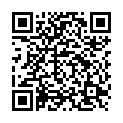|
|
|
| Module code: BAITM-510 |
|
4V (4 hours per week) |
|
6 |
| Semester: 5 |
| Mandatory course: yes |
Language of instruction:
German |
Assessment:
Written examination
[updated 21.03.2010]
|
BAITM-510 International Tourism-Management, Bachelor, ASPO 01.10.2008
, semester 5, mandatory course
|
60 class hours (= 45 clock hours) over a 15-week period.
The total student study time is 180 hours (equivalent to 6 ECTS credits).
There are therefore 135 hours available for class preparation and follow-up work and exam preparation.
|
Recommended prerequisites (modules):
BAITM-120 Microeconomics
BAITM-480
[updated 21.03.2010]
|
Recommended as prerequisite for:
|
Module coordinator:
Prof. Dr. Ralf Rockenbauch |
Lecturer:
Prof. Dr. Ralf Rockenbauch
Prof. Dr. Leonhard Firlus
[updated 21.03.2010]
|
Learning outcomes:
After being introduced to some of the theoretical foundations of economic policy and after discussing central questions of regulative policy, students will have an opportunity to deepen the knowledge gained in earlier courses on macro- and microeconomics and apply it to important areas of concern in economic and tourism policy. Students will not only become acquainted with the instruments of economic policy and their effects, but will also learn the significance of the relevant institutional and regulatory frameworks. The overall aim is to give students insight into the potential and limitations of economic policy-making for the tourism industry, such as sustainable tourism and politico-economic aspects of tourism).
[updated 21.03.2010]
|
Module content:
- Theoretical foundations of economic policy
- Allocative market failure and the role of the state
- Budgetary planning procedures in the Federal Republic of Germany
- Growth policies
- Anti-cyclical policies
- Labour market and employment policies
- Development politics
- Environmental policies
- Sustainable tourism
- Politico-economic aspects of tourism
[updated 21.03.2010]
|
Teaching methods/Media:
Much of the course material will be presented in lectures. By selecting appropriate data, students will be guided and encouraged to engage in an independent and critical discussion of current issues in economic policy.
[updated 21.03.2010]
|
Recommended or required reading:
- Bartling, H., Luzius, F., Grundzüge der Volkswirtschaftslehre, 15. Auflage, Vahlen, München, 2004
- Becker, C. u. a. Tourismus und nachhaltige Entwicklung, Wissenschaftliche Buchgesellschaft, Darmstadt, 1996
- Freyer, W. (Hrsg.), Tourismus: Einführung in die Fremdenverkehrsökonomie, 7. Auflage, Oldenbourg, München, 2001
- Koch, Walter und Christian Czogalla: Grundlagen der Wirtschaftspolitik, 2. Auflage. UTB, Stuttgart 2004
- Mundt, J., Tourismuspolitik, Oldenbourg, München, 2004
- Mussel, Gerhard und Jürgen Pätzold: Grundfragen der Wirtschaftspolitik, 4. Auflage. Vahlen Verlag, München 2001
- Opaschowski, H., Das gekaufte Paradies, Germa Press, Hamburg, 2001
- Opaschowski, H., Tourismus, 3. Auflage, Leske und Budrich, Opladen, 2002
- Rockenbauch, Ralf, Verkehrskonzeptionen für die Zukunft unter besonderer Berücksichtigung des Fahrradverkehrs – Eine ökonomisch-politische Analyse, Lang, Frankfurt, 1996
- Zimmermann, Horst und Klaus-Dirk Henke: Finanzwissenschaft, 8. Auflage. Vahlen Verlag, München 2001
[updated 21.03.2010]
|


